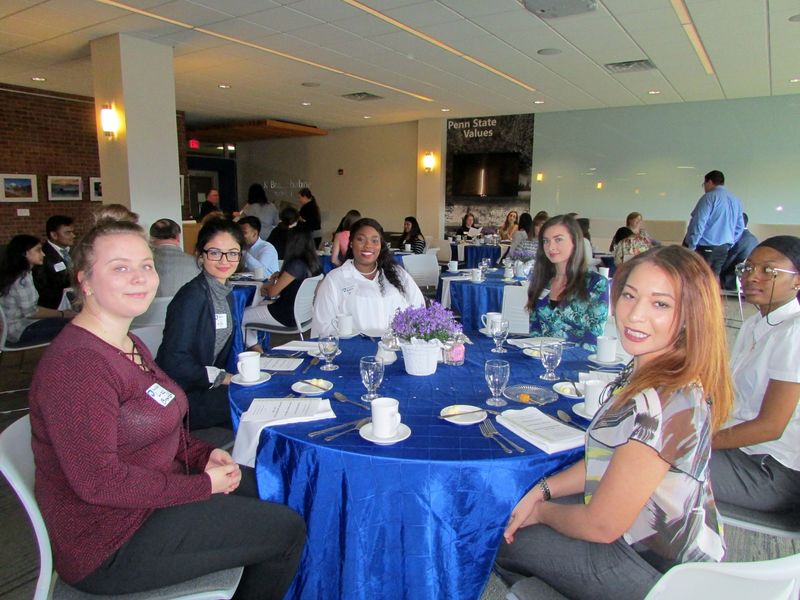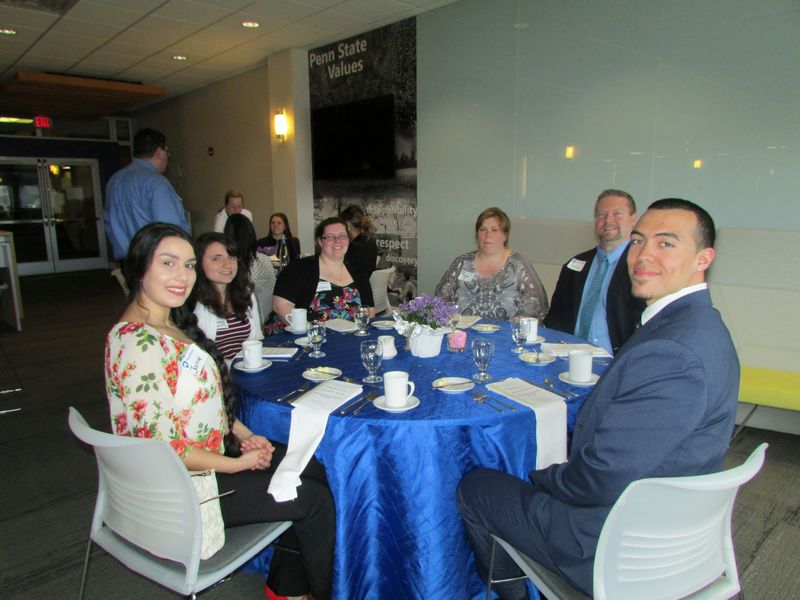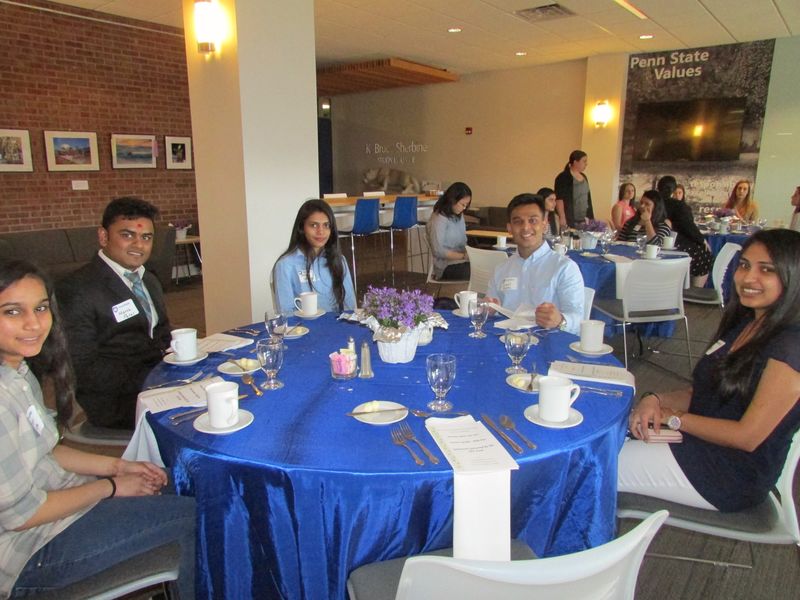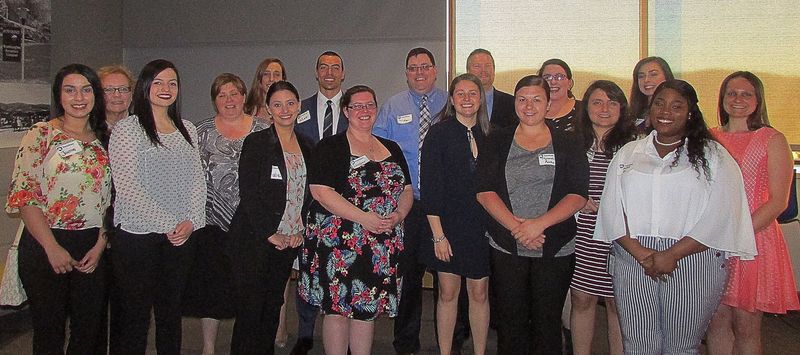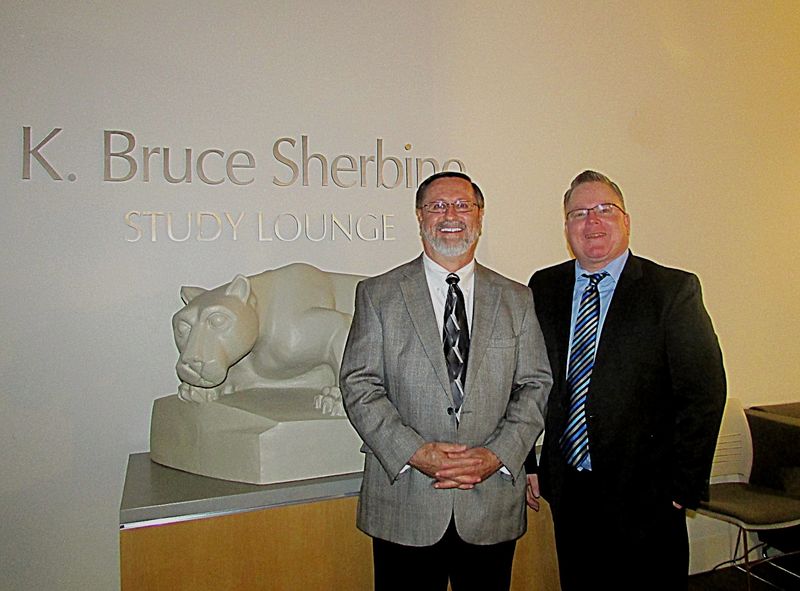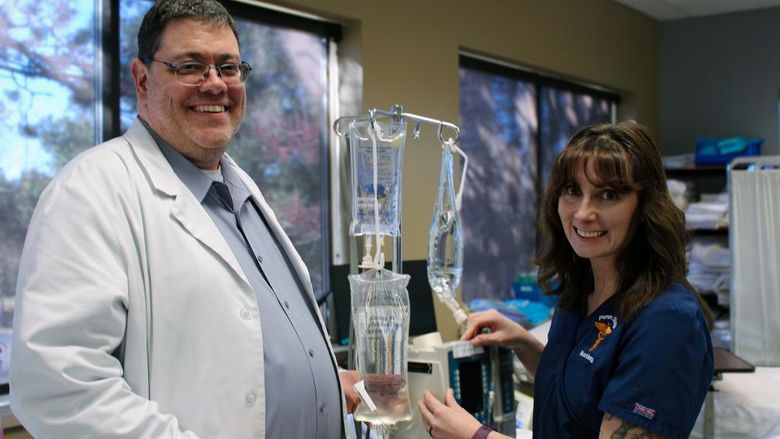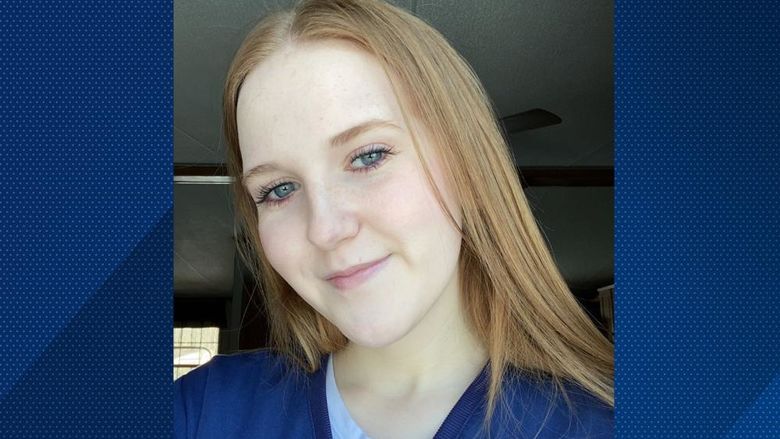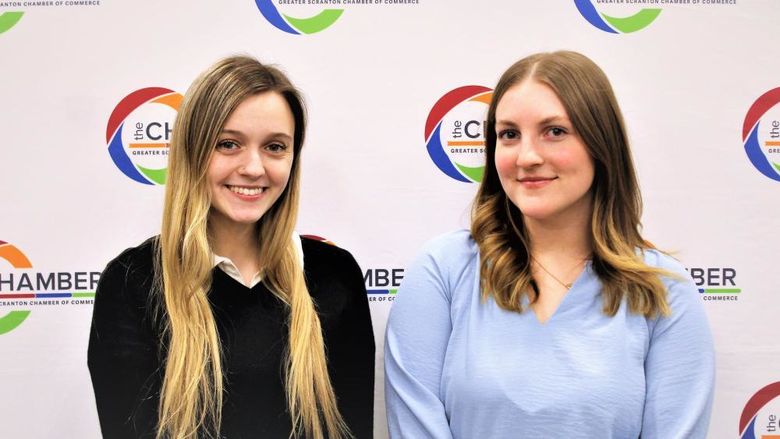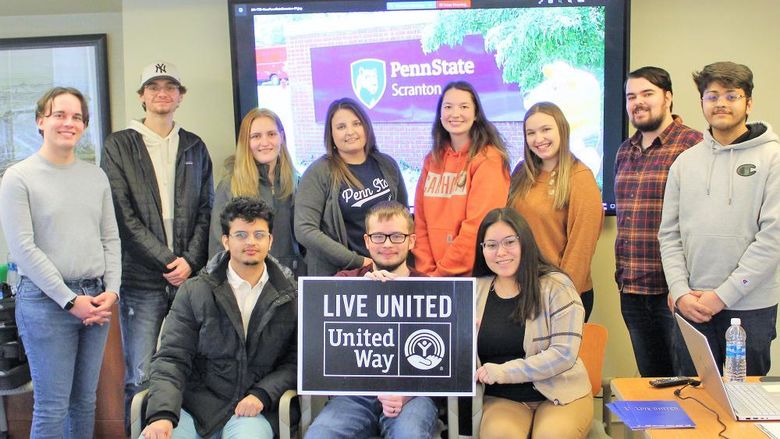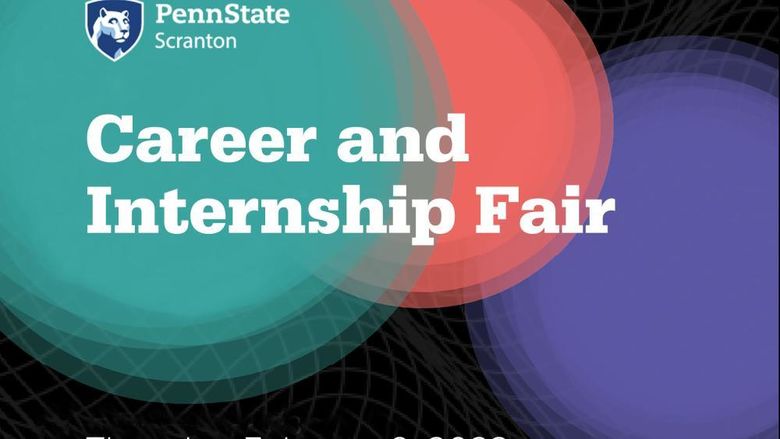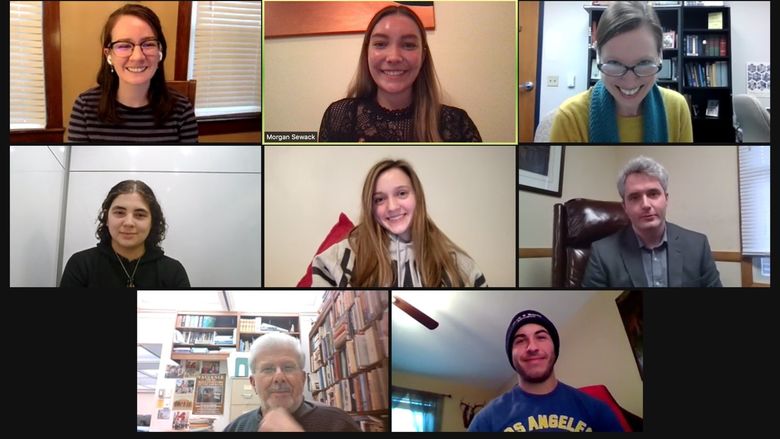Kelly Frey is a senior corporate communication major at Penn State Worthington Scranton. She attended this year's etiquette dinner as a future young professional interested in the event as a learning experience, and writes about what she learned and observed in the following article.
Each year, Penn State Worthington Scranton hosts an Etiquette Dinner for graduating students to teach them the finer points of dining etiquette, so that they can properly conduct themselves on interview luncheons, dinners and at formal, professional events that they attend as young professionals.
While etiquette might often receive a bad reputation these days as being a judgmental formality, the truth is that etiquette has served a great purpose for thousands of years.
According to Michael True, senior associate, talent development and marketing at Messiah College and host for the evening, “Etiquette serves its purpose in creating structure out of chaos to prevent distractions from what is important.”
He told the students that etiquette is meant to serve as a tool to allow people to relax and enjoy their meal without worrying about making a mess or distracting people away from their conversation.
As a student attending the dinner, once I understood the purpose behind the formalities, I truly enjoyed the experience.
The etiquette dinner started with a brief “cocktail” hour where students were encouraged to mingle -- a technique that helps prevent silence at the dinner table.
True then began to instruct the students right away, as he mingled with them and shared how to give a proper introduction. Throughout the evening he used a conversational tone with everyone, inviting students to ask questions openly and enjoy their meal as it was served, giving helpful tips and instructions along the way -- making the experience fun for all of us.
I enjoyed learning that many of the students in attendance, including me, already knew much of proper etiquette from sitting at home and eating dinner with the family.
Things like “do not place your elbows on the table and chew with your mouth closed” came naturally to us because these were things our parents had already taught us from a younger age.
The other techniques that we learned helped prevent unnecessary messes, which during an interview can be very handy:
• For instance, when eating soup, scoop away from yourself and then bring the spoon to you, which prevents the soup from dripping down your shirt.
• Eating bread was a surprise for many people as well. It is actually appropriate to rip the bread into small, bite-sized pieces and butter those pieces one-by-one as you eat. This allows you to join in conversation easily when approached because there will not be too much food in your mouth, and you will not distract others as you mess around with your bread.
Casual conversation can be difficult for certain people to grasp. True taught the students a great mechanism for help in this area: F-O-R-D which stands for Family, Occupation, Recreation, and Dreams.
These are safe topics that one can bring up in conversation without worrying about whether their comments are appropriate or not. This technique can be great to help move a conversation or show initiative during an interview.
All of these clever techniques, which I realized were important to know, started to make me feel more comfortable in thinking about attending future events in a formal setting.
As a student networking for professional jobs, there may come a day when I will interview with a company over a meal, or start a job and be invited to a work lunch immediately.
I was especially grateful for this experience because later this week I will be having a formal interview over dinner and having these additional etiquette skills will not only make me more comfortable, but also serve as an additional way to impress a future potential employer.
After attending this event, which some students dismiss as an unnecessary activity and not something that will be of use to them, I would strongly encourage all students to attend this type of teaching dinner.
It will teach them the finer points of etiquette, show how simple using proper etiquette can be, and allow them to experience first-hand how comfortable it can potentially make you feel during an interview conducted over a meal or in a formal setting, where employers will be watching how you conduct yourself, as well as what you are saying.
This year's dinner was sponsored through the campus' Student Activity Fee and was open to all students. The annual event is held each spring prior to graduation, in an effort to provide a real-world learning experience that will help students as they graduate and enter the workforce.
For those who did not attend the dinner, but would like to learn more on proper etiquette techniques, visit True’s company website, InternQube.com to watch etiquette videos and learn more proper business etiquette techniques.
